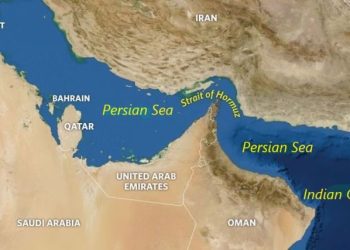Bandung, IndonesiaSentinel.com — Zimbabwe plans to cull 200 elephants to provide food for communities facing severe hunger due to the worst drought in four decades, wildlife officials announced on Tuesday. The drought, driven by the El Nino weather phenomenon, has devastated crops across southern Africa, leaving 68 million people in the region struggling with food shortages.
Stated from Reuters, Tinashe Farawo, a spokesperson for Zimbabwe Parks and Wildlife Management Authority (Zimparks), confirmed the cull, stating, “We can confirm that we are planning to cull about 200 elephants across the country. We are working on the logistics and modalities for the process.” The elephant meat will be distributed to communities most affected by the drought, he added.
The cull, which will be the first since 1988, is set to take place in Hwange, Mbire, Tsholotsho, and Chiredzi districts. This follows Namibia’s recent decision to cull 83 elephants to provide meat for people affected by similar drought conditions.
Zimbabwe is part of a conservation region that includes neighboring countries such as Zambia, Botswana, Angola, and Namibia. Together, these nations are home to more than 200,000 elephants, one of the largest populations of the species in the world. However, Zimbabwe’s elephant population, estimated at 84,000, far exceeds the 55,000 that the country’s parks can sustainably support.
“This cull is a necessary step to decongest our parks, especially in the face of a severe drought,” Farawo explained. “However, 200 elephants is just a small fraction of our population, which currently sits at over 84,000.”
Spending 6 Hours Daily on Smartphones, Indonesians Ranked World’s Top Mobile Users
The drought has also heightened human-wildlife conflicts, with scarce resources pushing animals closer to human settlements. Last year, 50 people in Zimbabwe were killed in elephant attacks. Authorities fear these conflicts will worsen as both humans and animals compete for dwindling water and food supplies.
Zimbabwe, often praised for its wildlife conservation efforts, has been lobbying the United Nations’ Convention on International Trade in Endangered Species (CITES) to lift a ban on the trade of ivory and live elephants. The country currently holds $600,000 worth of ivory stockpiles, which it cannot legally sell due to international restrictions.
Drought’s Widespread Impact
Zimbabwe is one of the countries in the region’s vulnerable agricultural belt and has frequently experienced the detrimental effects of El Nino in the past from 1982 to the present. El Nino events have been associated with prolonged dry spells, reduced rainfall, and increased temperatures. These conditions often lead to droughts, water shortages, and crop failures, posing significant challenges to health, agriculture, and food security in the country.
The ongoing drought has not only affected wildlife but has also left millions of people across Zimbabwe and the wider southern African region in urgent need of food assistance. Zimbabwe is one of several countries hit hardest by the drought, with widespread crop failures aggravating food insecurity.
The food crisis has prompted efforts to seek sustainable solutions to support affected communities. However, as resources grow scarcer, the intersection of environmental conservation and human survival becomes increasingly difficult to navigate.
As Zimbabwe moves forward with its plan to cull elephants, the country remains under significant pressure to find long-term solutions that address both human needs and wildlife conservation.
(Raidi/Agung)

























